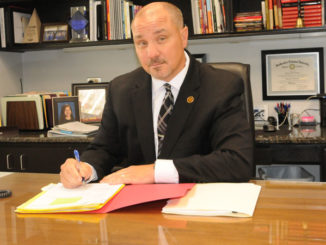
In less than two weeks, the 2012 Regular Session of the Legislature will be gaveled to order. There will be new faces in both chambers, new leaders in the House and Senate, and a bevy of controversial issues that will make life interesting for the lawmakers. Members of the Legislature do not relish controversy.
They much prefer issues that make groups of their constituents happy without making any of them angry. On at least two issues—education and retirement reforms—that ideal situation isn’t likely to occur in the impending session.
The education reforms announced by Governor Jindal have drawn wide support from many reform groups that have fought the good fight for decades to increase student achievement in the Bayou State. For too long in this state, legislators and governors defaulted to the whims of the teacher unions, school boards, and education bureaucrats when it came to addressing the depressingly low levels of achievement of too many of our students. Governors Roemer, Foster, and Blanco all moved the ball forward and led the fight to improve accountability and get Louisiana off of the bottom in the national rankings. Those reforms moved us from a virtual tie with Mississippi for last place to our current ranking of 47th. That isn’t good enough.
Governor Jindal is proposing a series of reforms to address teacher tenure, expanded parental choice in education, and restructuring early childhood education to get better results from the dollars currently being spent in that area. The battle in the Legislature—and it will be a battle—on these issues in some ways is a carryover from last fall’s elections for members of the Board of Elementary and Secondary Education (BESE). In those elections, the governor teamed up with the business community and other reformers to elect what could be the most reform-oriented BESE in modern history. But it will take an even stronger and more unified effort to advance the education reform bills to the governor’s desk.
Retirement reform is another area where maintaining the status quo is not an option. For years, various public employee groups went to the Legislature to get sweetheart legislation passed to enhance retirement benefits or lower eligibility requirements. In the past, legislators were willing to pass those bills but were not willing to appropriate the amount of money necessary to fully fund the benefits. The result was an ever-expanding unfunded accrued liability (UAL) in the various retirement systems.
Today, the UAL shortfall stands at $18.5 billion. Simply put, state government cannot continue to offer the expensive “defined benefit” approach to new employees entering the system.
There also should be consolidation within the management functions of the multiple retirement system operations. And steps must be taken now—not 25 years from now—to start erasing that huge $18.5 billion UAL.
It is no fun cleaning up the mess left by others. Legislators, as mentioned before, don’t enjoy tackling controversial issues. Inertia is a powerful force. Left to their own devices, many in the Legislature will be tempted to find a way to get around the controversy and do as little as possible.
That is why the voters need to become keenly aware of the deficiencies in our education and retirement systems and push for real solutions to the problems.
The good thing about the law of inertia is, once an object is finally set into motion, it tends to remain in motion. It is time to get the K-12 education and retirement systems out of their ruts and moving toward sound results.




Be the first to comment